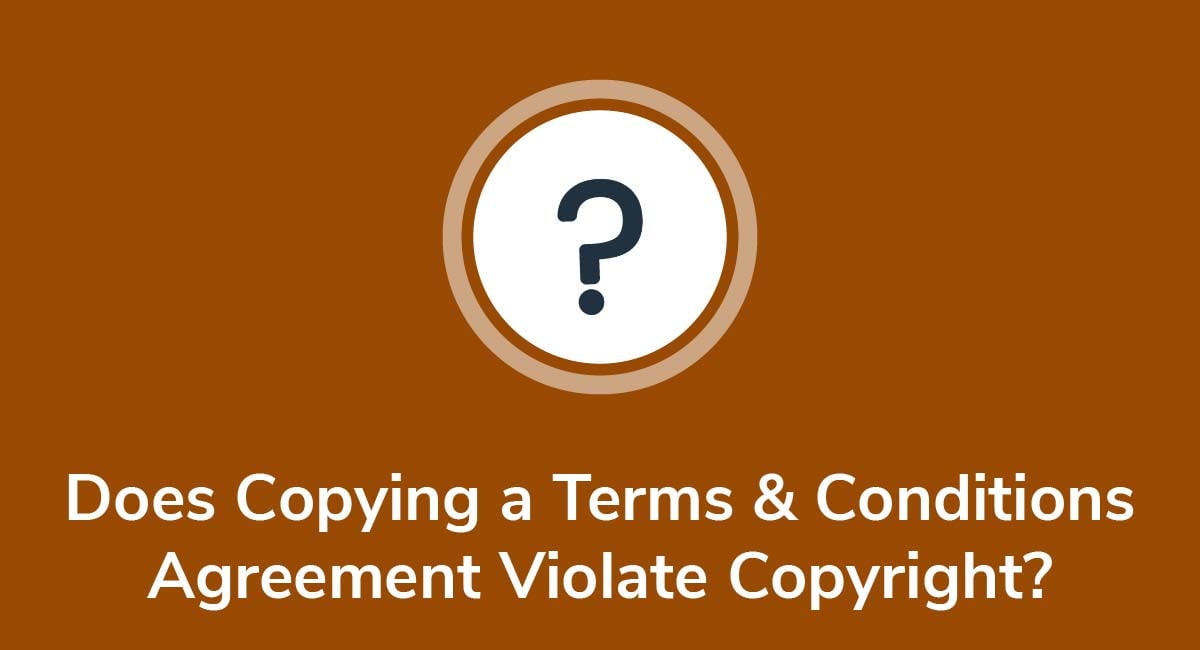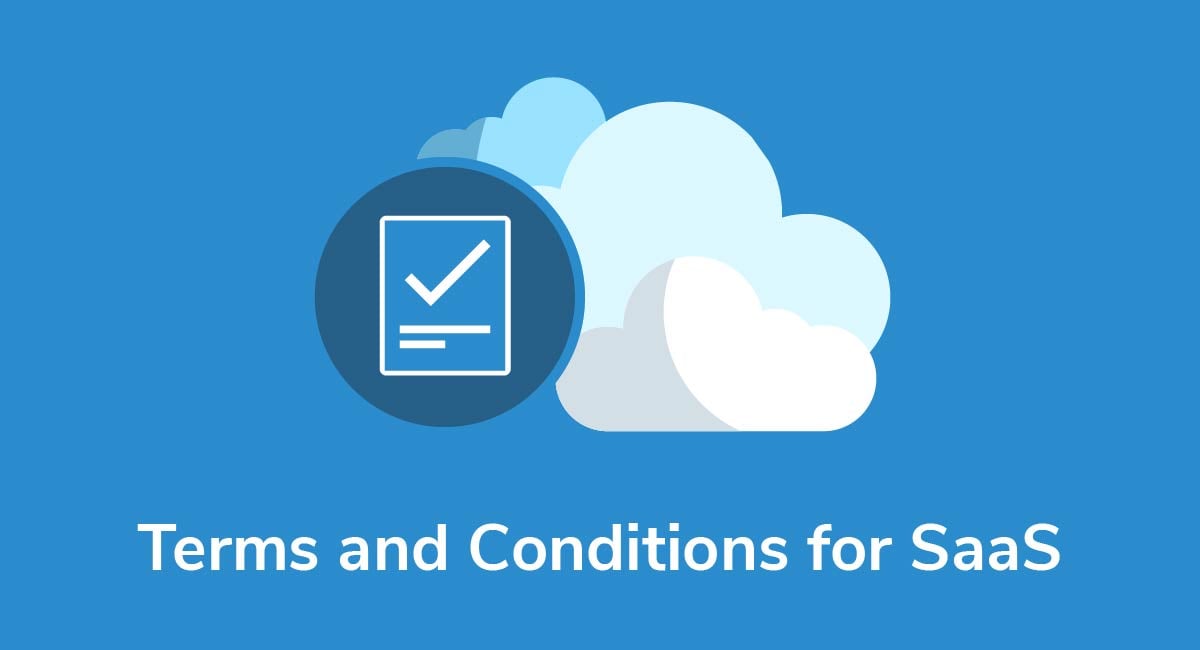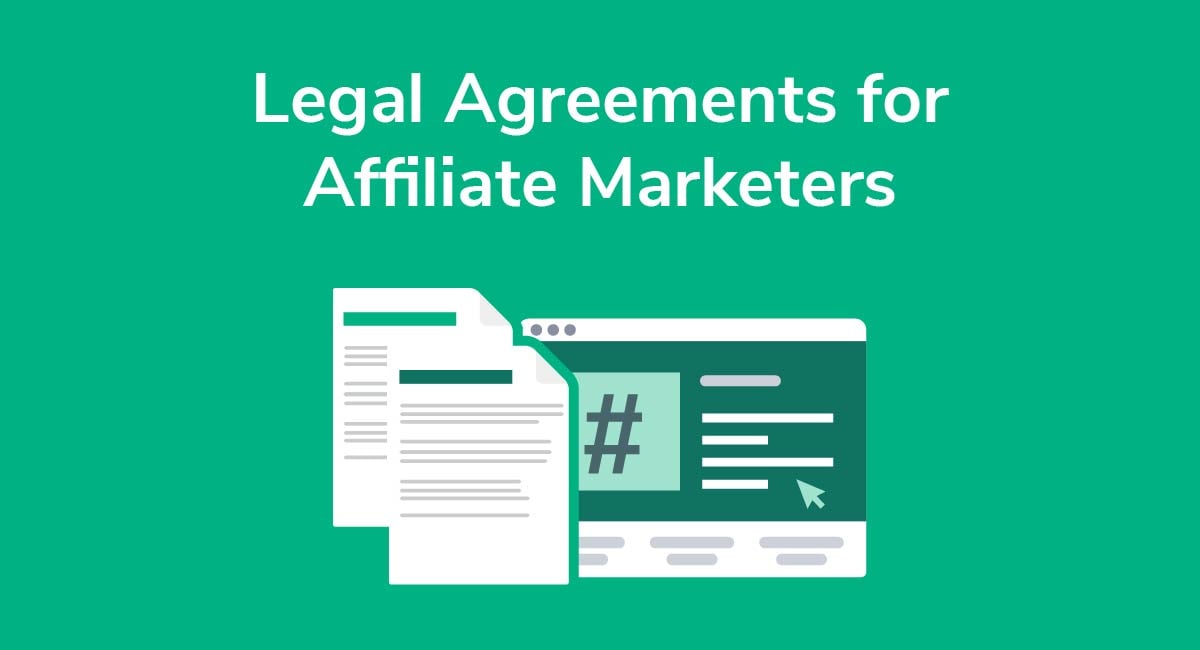Governing Law Clause in a Terms and Conditions Agreement
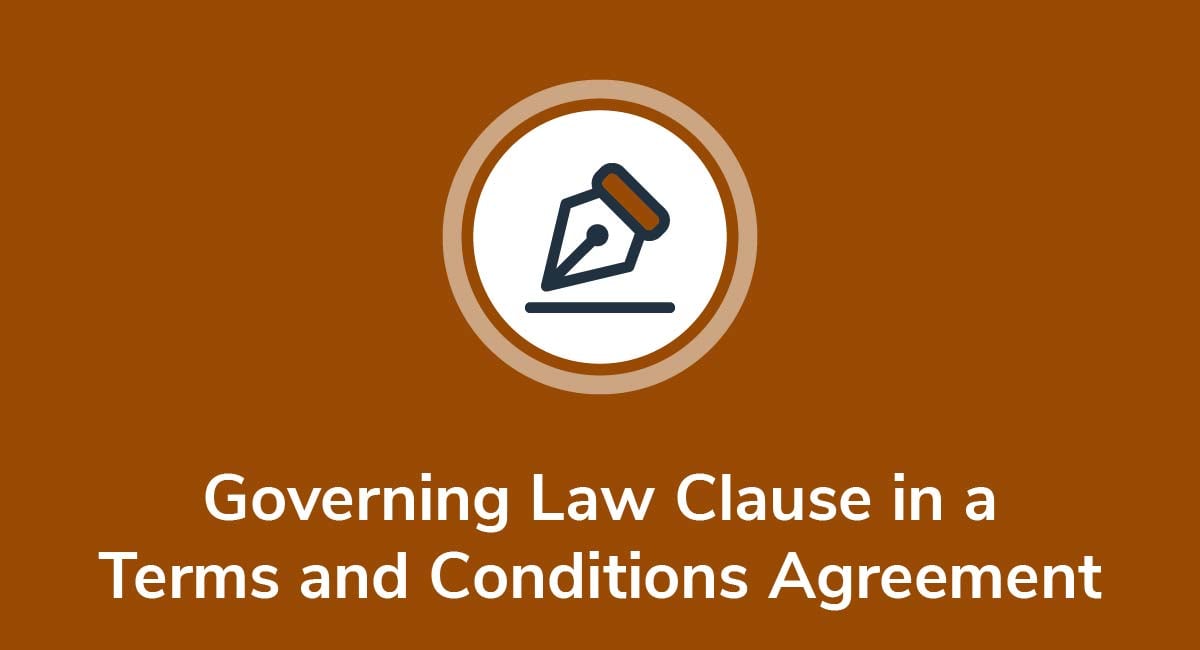
A governing law clause is a clause found within a legal agreement (such as a Terms and Conditions agreement) that states what laws the agreement shall be governed by in the event of legal disputes.
You should include a governing law clause in your Terms and Conditions agreement whether you develop mobile apps, sell products or services online, or own a traditional brick-and-mortar business.
A governing law clause will be particularly relevant if you have customers in other states or countries.
In this article, we'll cover why governing law clauses are so important, what benefits they can provide for you and your users, and how you can create one easily.
Need Terms and Conditions for your business? We can help you generate a customized Terms and Conditions agreement in around two-three minutes for free. Try our Terms and Conditions Generator and just follow these steps:
- Click on the "Create your Terms and Conditions today" button.
- At Step 1, select the where will you use your Terms & Conditions and click "Next step":
- Add information about your business:
- Select the country and continue to the "Next step":
- Answer the questions about your business practices and click "Next step" when finished:
-
Enter your email address where you'd like your agreement sent and click "Generate."

You're done! Now you'll be able to instantly access and download your new agreement.
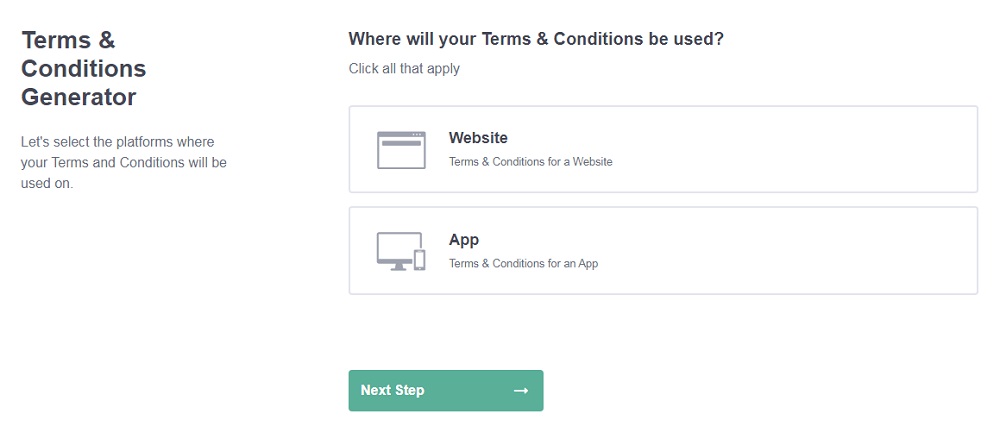
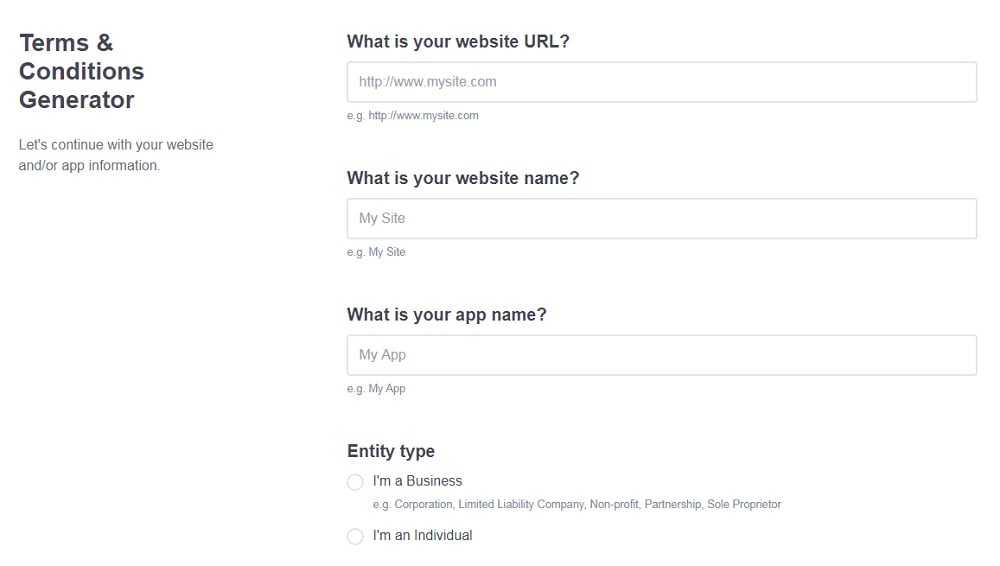

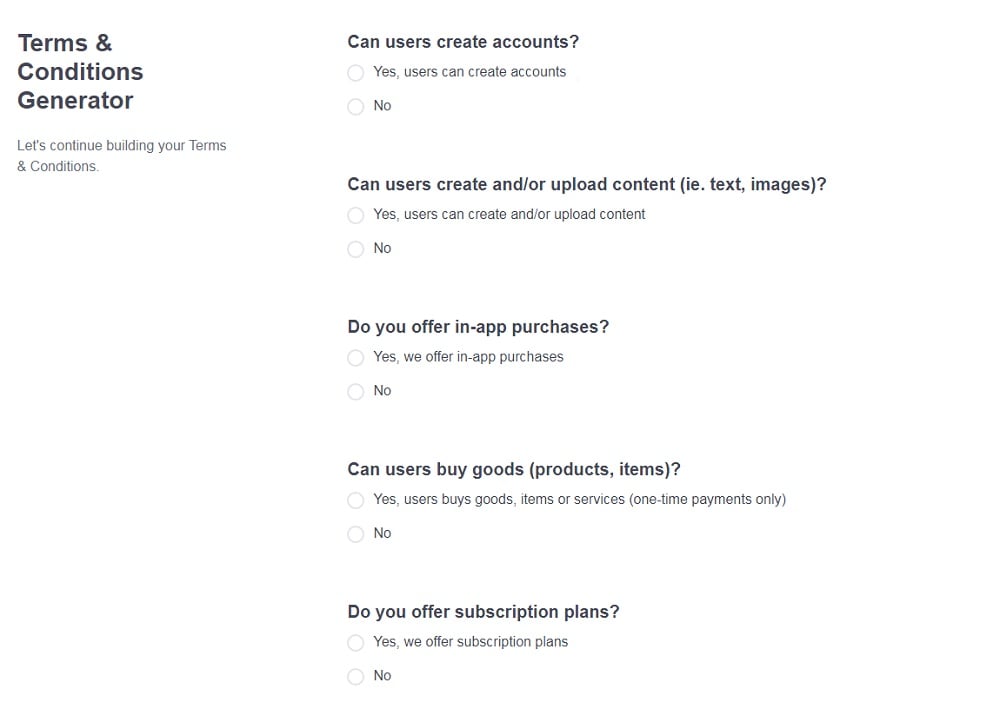
- 1. Governing Law vs. Jurisdiction - What's the Difference?
- 2. Why Have a Governing Law Clause in Your Terms and Conditions Agreement?
- 3. Writing Your Governing Law Clause
- 4. Examples of Governing Law Clauses
- 5. How to Make Your Governing Law Clause Enforceable
- 6. Where to Display Your Terms and Conditions Agreement
- 7. Summary
Governing Law vs. Jurisdiction - What's the Difference?
Though the terms "governing law" and "jurisdiction" are often used interchangeably, they actually have very different meanings.
Governing law establishes which state or national laws will apply if legal issues arise between you and your customers, while jurisdiction is the place where disputes will be resolved.
It's also worth noting that governing law and jurisdiction don't have to match up.
A governing law clause may stipulate that lawsuits must be filed in Florida (jurisdiction), but that Texas law (governing law) will be used to decide the case.
Why Have a Governing Law Clause in Your Terms and Conditions Agreement?

A solid governing law clause can provide clarity by letting users know what to expect in the event of a legal dispute. It can save you costly legal fees if you get sued and a customer tries to sue you under the laws where the customer lives, where you have no other connection but that customer.
This is why a governing law clause is especially important if you have customers in other states or countries.
An example is a California-based software developer with customers in the European Union (EU). If governing law hasn't been established via a Terms agreement, it may not be clear which laws would apply if a customer in Spain initiates legal action after purchasing a faulty product.
In a case like this, the company could avoid hiring a pricey international law firm simply by establishing governing law in California.
Just keep in mind that you can't necessarily choose the state or national laws that best suit you, because courts usually look for some connection between governing law and:
- Where the business is headquartered
- Where the customers reside
- Where the transaction (or some part of it) occurred
When practical, many companies choose to establish governing law on their "home turf."
Writing Your Governing Law Clause

The main goal of your governing law clause should be to clearly establish which state or national law or laws will apply in the event of legal issues between you and one of your customers.
For clarity, many companies choose to keep their governing law clauses short by addressing this issue alone. On the other hand, some companies address the following related topics alongside governing law:
- Jurisdiction
- Arbitration
- Severability
If you address multiple items within one clause, you may want to use subheadings or bold text so users can find what they're looking for easily.
It's a good idea to keep your governing law clause as concise and straightforward as possible.
It may be enough to inform users that your Terms are governed by the laws of the state in which your business is headquartered, but you don't necessarily have to default to the laws of your home state.
When choosing governing law, shop around and choose one that will benefit you and your business.
Just remember that the selected governing law needs to be enforceable, and that there needs to be some link between it, you, your business, and customers. Unfortunately, but understandably, you can't just pick a law from a place to which you and your users have no connection to govern your agreements.
Your governing law clause can be written using traditional paragraphs, bullet pointed lists, or divided into subsections with distinct headings. Each method is acceptable, as long as the wording is clear and users can find what they're looking for and understand it with relative ease.
Examples of Governing Law Clauses

Below are some examples of governing law clauses so you can see how they're structured, what information they contain, and get an idea of different ways to present your own.
While some companies lump governing law and jurisdiction together, Eaton has a distinct Choice of Law clause:

Eaton's Choice of Law clause establishes that the agreement is governed by the laws of Ohio.
The company also lets users know that only unlawful and unenforceable provisions will be severable, and that other provisions remain unaffected.
Here's how Hino Motors Sales U.S.A. addresses Governing Law and Jurisdiction together in its Terms of Use agreement:

In the first paragraph, Hino establishes the governing law as the laws of the State of Michigan. In the second paragraph, the company lets users know that all legal proceedings must be initiated in state or federal courts in Oakland County, Michigan.
This Governing Law and Jurisdiction clause only applies to Hino USA, because many large multinational corporations maintain distinct websites for each country or region in which they do business.
Here's how Italian-based tire manufacturer Pirelli addresses Law and Jurisdiction on its UK website:

This clause also establishes that English Courts have exclusive Jurisdiction in any legal proceedings.
In the following example, Pirelli establishes Governing Law and Jurisdiction differently in its global Terms and Conditions:

Pirelli also points out that it reserves the right to initiate legal proceedings elsewhere at its discretion.
In the next example, Maryland-based spice company McCormick uses the terms Choice of Law and Forum in place of Governing Law and Jurisdiction:

In this clause, McCormick lets users know that the Agreement is governed by the laws of Maryland, and that state and federal courts within Maryland have exclusive jurisdiction over any legal proceedings between the company and its users.
If you have users in a few areas where the governing law will differ, you can divide up the clause like the following example:

This example establishes that U.S. customers are to be governed by U.S. federal laws as well as the laws of the State of North Carolina. For residents of Canada, the governing law is the law of Canada and the province of Ontario.
In its Terms and Conditions, CEVA Logistics lets users know that its website is managed from offices within the United States, and that any claims resulting from use of the site are governed by the laws of the State of Texas:

Here's how online beer, wine, and spirits seller Drizly addresses Applicable Law in its U.S. Terms of Service:
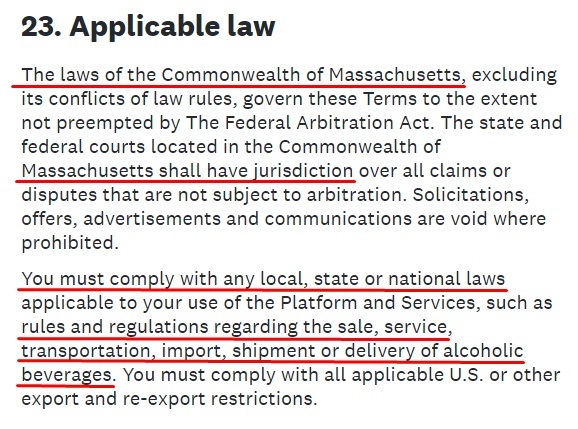
In the first paragraph, Drizly establishes that the laws of Massachusetts govern its Terms and that Massachusetts courts have jurisdiction over all claims.
How to Make Your Governing Law Clause Enforceable

First, make sure that you choose a governing law that has a connection to your business or your customers.
Next, make sure that people are always able to access your Terms and Conditions agreement that includes your governing law clause. This must be the case whether they've signed up for an account with you or are just browsing your site. This will ensure that your governing law clause is more likely to be held to be enforceable if you're ever in legal trouble.
Finally, use an I Agree checkbox whenever possible when users buy from you or sign up for your site, and get them to agree to your terms by checking the box. This will help you prove later that the person suing you did in fact agree to be bound by your terms, and thus the governing law you set out.
Otherwise, you risk needing to accommodate the lawsuit where the individual is suing you, which may be terribly inconvenient and costly to you.
Here's an example from SurveyMonkey:
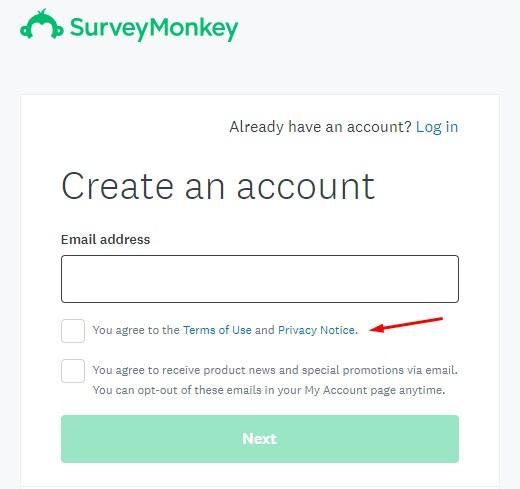
Before a user can even sign up for an account there, they must check a box to explicitly agree to the Terms, which would include a governing law clause.
Where to Display Your Terms and Conditions Agreement

Governing law clauses are generally placed in Terms and Conditions (also known as Terms of Use or Terms of Service) agreements, which are usually found linked to website footers and in menus within mobile apps.
Here's how you can link to your Terms at the footer of a website:

A governing law clause can also be placed under a different heading like "Legal."
Similar methods of getting consent can also be used at checkout or when a user signs up for an account.
Here's an example of how this can look:
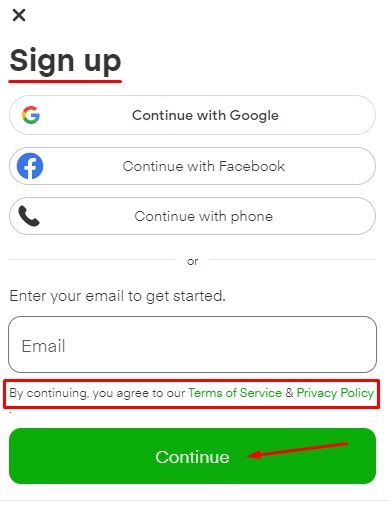
Summary
Your governing law clause should promote clarity by letting users know what state or national laws will apply if legal issues arise.
Governing law clauses are most commonly found within Terms and Conditions agreements which are usually located on website footers near other important links. They can be written in traditional paragraphs, bullet pointed lists, or divided into subsections with their own headings. Each method is acceptable as long as the wording is as simple and clear as possible.
Also keep in mind that governing law is the law or laws that will apply if legal issues arise between you and your users, and that Jurisdiction is the place where litigation must be initiated.
It's good to choose a governing law that's favorable to your business, but there must be some connection between you, your customers or transactions to ensure that it's enforceable.
